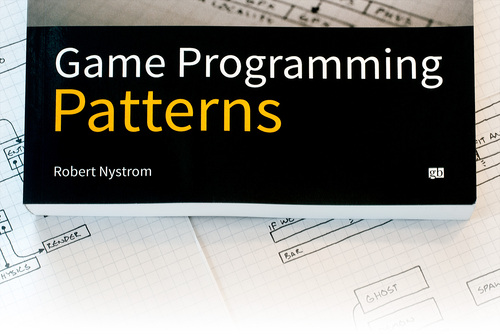Speeding Up SVN Checkout for Large Repositories
After moving our gigantic SVN repo to a new server, we wanted to speed it up. Note that some of these recommendations are peculiar to using the svn+ssh:// protocol. If you’re serving SVN via Apache or something, you might need very different advice.
Migrating a Large SVN Repository to a New Server
We ran into a situation at work where we needed to move our SVN repo from an old Linux server (running Ubuntu 10.04, in 2017!!) to a shiny new cloud instance.
Continue reading…Notes on Game Programming Patterns by Robert Nystrom
Game Programming Patterns is a game developer’s guide to the design patterns most often useful in that domain. You can read it online for free.
Continue reading…“Invention is Drudgery”
As a guy who’s spent the last 18 months working on a particular drudgery, with another 6 months to go, this really resonated with me.
What looks from the outside like a flashy, amazing outcome was probably the results of long, mostly boring toil. (So take heart, ye who toil long on important-yet-maybe-boring work!)
Sarah's Paintings
Highlights from Robert C. Martin’s Clean Code
This page collects the things I found really insightful in Martin’s Clean Code. By “insightful,” I mean things I didn’t already practice as a programmer with a couple years of experience. Thus, I’ve skipped over tips like “don’t be afraid of long variable names” in favor of things like “functions should act at one level of abstraction.”
Continue reading…Notes from Andre Alexandrescu’s Modern C++ Design
Here are my highlights from Andre Alexandrescu’s Modern C++ Design: Generic Programming and Design Patterns Applied.
Continue reading…Stupid Type Conversions in C++98
If you’re working on a C++98 project, you have my condolences.
There are a number of type conversions that newer versions of C++ make super easy, but which are not included in C++98.
Here’s my reference for these:
Continue reading…C++ Pointers & References Cheat Sheet
My dirty little secret: I’ve spent too much time in fancy-pants languages like Java… and Python… and Ruby… and PHP… and Javascript… to remember what the & does all the time.
This is my cheat sheet. Hope it helps you too.
Continue reading…The Problem of Collision Avoidance in Unmanned Aerial Vehicles
During the 2011 NSF-funded REU on collision avoidance in UAVs at Auburn University, my team performed a literature review describing the most well-represented methods of collision avoidance. You can download the paper as a PDF.
Continue reading…On the Acquisition of Semantic Categories
This paper, written for my Language and the Mind course, is a summary of the current state of knowledge regarding the acquisition of semantic categories–that is, what we know about how you learn the meaning of words.
Continue reading…Does HAL Cry Digital Tears? Emotion and Computers – Rosalind Picard
This is an abstract of a chapter from Rosalind W. Picard’s book HAL’s Legacy. The piece is available on the MIT Press site here (note that there are 9 sections to the chapter).
Continue reading…Minsky’s Frame System Theory
This is an abstract of Marvin Minsky’s Frame System Theory paper, a classic paper in defining the problem space for an intelligent artifact. The paper itself is a pretty easy read, and it sheds some light on the sort of problem that humans are really good at doing without even realizing they’re good at it.
Continue reading…Some Challenges and Grand Challenges for Computational Intelligence – Edward Feigenbaum
This is an abstract of Edward Feigenbaum’s paper “Some Challenges and Grand Challenges for Computational Intelligence,” which presents a “grand vision” for the future of artificial intelligence research. You can read Feigenbaum’s own summary of the paper here.
Continue reading…Mind Design – John Haugeland
This is an abstract of the first chapter of John Haugeland’s Mind Design II, an edited collection of important works in cognitive science. It provides an overview of the framework used by cognitive scientists and, in particular, those interested in designing intelligent artifacts.
Continue reading…Computing Machinery and Intelligence – Alan Turing
This is an abstract of Alan M. Turing’s “Computing Machinery and Intelligence” paper, which outlines what is, in many circles, the accepted standard test to determine if a machine is intelligent. You can read the original paper on the Hugh Loebner’s site, here. It’s a straightforward read, even if you aren’t a computer scientist.
Continue reading…







